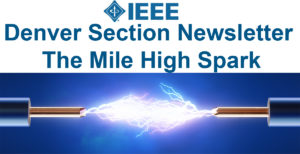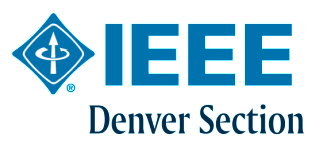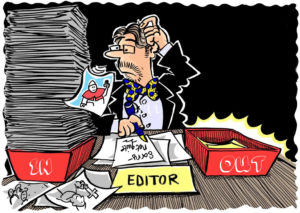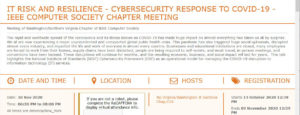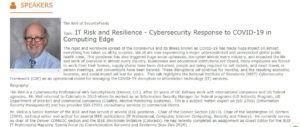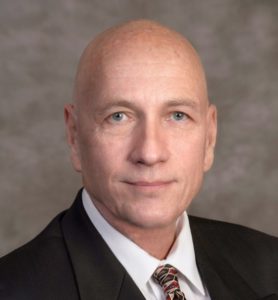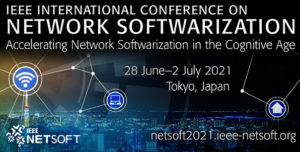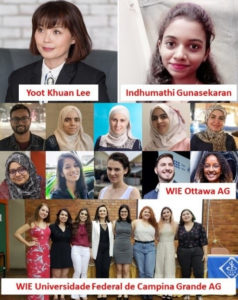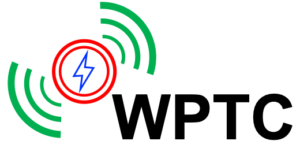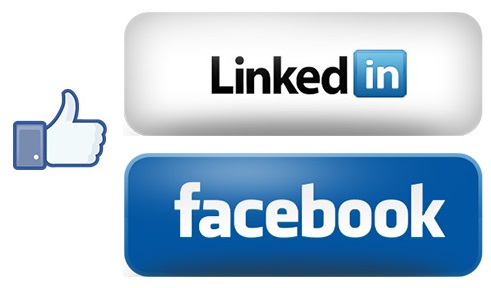|
Section Officers: Chair: Jason Rupe Vice-Chair: Available Treasurer: James Sipes Secretary: Santosh Veda
November/December 2019 Volume 11 Issue 6 |
GET INVOLVED!! Whether you are active in IEEE ExCom, are a chair of a technical society, or just a paying member, we thank you for being a part of something that we think is pretty great. If you want to get more involved, you know where to find us! And if you just want to enjoy the hard (and not-so-hard) work of our volunteers by attending our events we would love that even more! Take advantage of the monthly volunteering efforts we have put together for you. Try something new, meet some new people, and learn something new by listening to a distinguished lecturer. Oh, and thank you for being a reader of our newsletter! Editor: Ernest Worthman
|
Excom Meetings Currently, of course, due to the pandemic these meetings are virtual. Notices will be sent when the will be held. We will advise everyone when they are back in person. Recent Excom Actions None Open Positions Some of the Standing Committees where we could use some great volunteers include:
Actually just about anything you can think of, we’re interested in talking to you! If you are interested in volunteering, please send email to chair@ieee-denver.org. Positions will be open until filled. |
In This Issue |
| Applied Wireless Technology Magazine | AGL eDigest Newsletter |
| Local Events | News | Interesting Links |
|
ATTENTION STUDENTS – IEEE Policy change for student membership The IEEE boar Students wishing to take advantage of the discount can do so by using the promo code FUTURE50 during the online check-out process for joining or renewing their IEEE membership. This IEEE Board action is providing financial relief to students affected by the global pandemic and subsequent economic hardships around the world. The action empowers IEEE volunteer leaders with an additional tool to help students in need of IEEE’s resources, as well as assist students whose IEEE membership has lapsed. Students who recently renewed or joined at full price can reach out to the IEEE Contact Center at: contactcenter@ieee.org and request a credit on future membership dues. |
||
On the Edge – Approaching the Development of 6G mobile wireless networksGuest Column – Quality Mobile Connectivity for Rural America |
Technology Insight – Accelerating the Design and Deployment of Autonomous Cars WorldwideTech Talk – Simplifying MOSFET And MOSCAP Device Characterization |
|
|
| Technical Articles and While Papers |
| Blending DSP and ML features into a low-power general-purpose processor – how far can we go? By Joseph Yiu, Distinguished Engineer, ARM |
| Blockchain’s future role in cybersecurity. – By Artur Rot, and Bartosz Blaicke, Dept.of Information Systems Wrocław University of Economics |
| Challenges and opportunities in edge computing – By Blesson Varghese, Nan Wang, Sakil Barbhuiya, Peter Kilpatrick and Dimitrios S. Nikolopoulos School of Electronics, Electrical Engineering and Computer Science Queen’s University Belfast, UK |
| Edge computing for the Internet of Things: A case study. By Gopika Premsankar, Mario Di Francesco, and Tarik Taleb |
| Discrete FETs vs. power blocks – how to choose the right SOA for your design. A TI Whitepaper |
| A look at the technology driving new robots. An Electronic Design technical article. |
| Mobile Wireless Sensor Networks: An Overview. By Velmani Ramasamy. |
| Choosing the best vibration sensor for wind-turbine condition monitoring. By Richard Anslow and Dara O’Sullivan, Analog Devices |
| Managing 5G slice QoS end-to-end. By Paul Veitch BT Applied Research Ipswich, UK, John Browne Intel Shannon, Co. Clare, Ireland, Jonas Krogell Netrounds AB Luleå, Sweden |
| Understanding security requirements and challenges in the Internet of Things (IoT): A Review. By Sufian Hameed, Faraz Idris Khan, and Bilal Hameed |
|
Special Presentation – How Covid 19 has altered the IT Space As much devastation as the pandemic has had on society, ironically, some segments have benefitted from it. The COVID-19 epidemic has had a positive impact on IT. However, the pandemic has raised some important issues as well, such as increased and novel cybersecurity threats and risks, performance issues due to significantly increased workload, and business continuity. This talk expands on, and dissects the National Institute of Standards (NIST) Cybersecurity Framework (CSF) as an operational model for managing the COVID-19 disruption to information technology (IT) services. Below are brief overviews of the topic and speaker. For more readable copy, simply click on the image below. This seminar is now available on demand. Click here to view. |
| Message from Jason Rupe, Chair, IEEE Denver Section.
2020 is now hindsight 2020 started out normal but ended up far off the rails. Here in the Denver Section, we had to make adjustments too. And as we conclude the year, we’re still dealing with a new normal, as we transition to new leadership mixed with some continuation. The new normal requires us to meet virtually of course. That means our flagship events of dine and learn had to be virtualized, and that will continue indefinitely. Another flagship event that will have to change is our Build Something Cool event. If you are informed, you will realize that each year for the past few we have helped children foster their interest in STEM by soldering small electronics projects with the help of an IEEE member. This event succeeds because we can get engineers and students and necessary kits and tools at the same location. This is not possible during the current pandemic. But the need continues. This is where you come in! We need ideas to keep supporting students interested in STEM despite our new normal, and we need your energy to make it happen! The leadership updates as planned. While our secretary and treasurer remain in place, along with many other positions still in their terms, our Vice-Chair and Chair-elect will become the new chair, as I become the junior past chair. A new vice chair will step in and test the role to potentially become the new chair-elect eventually too. Meanwhile, we have many other roles we need to fill. This is also where you come in! We need you to volunteer with the Denver Section to make the new normal an exceptional normal. Time to step up! The need is there, and the timing is right. We look forward to having you join us at an ExCom meeting, still the third Tuesday of 10 months a year. For now, the new normal continues so please join us at our virtual Webex meetings until we are again allowed to meet in person. Whether you stay with us virtually or join us in person once the new normal gives us back some of the old normal, we look forward to seeing all you! Wishing everyone a happy and prosperous new year.
The Russians are coming, the Russians are coming! For my last editorial of 2020 I’m doing a bit of a deeper dive on the recent emergence of the technology attacks Russian has been perpetrating on our country. As most of us are now aware there has been a major infiltration, by Russia, on our country’s technology infrastructures. What many do not know is that this has been going on since early this year. For most of us, our awareness of it has only been recent, as well. Depending upon which source you get your data from, it can vary as to what is going on, but the bottom line is that there was a vulnerability in the SolarWinds’ Orion software (guess what… a backdoor). This was the attack surface the Russians went after – and they were successful. They managed to hack a company called FireEye, which, according to their website, “FireEye knows more about cybersecurity than anyone.” Well, considering what just happened, that is a bit concerning. And, FYI, FireEye’s senior management is now being investigated by an international securities law firm for breaching their fiduciary duties. The DoJ is starting to sniff around, as well. One has to wonder how this was allowed to happen. My sources tell me that originally FireEye was targeted using compromised SolarWinds software. Once they were breached, the hackers stole a host of company tools used to mimic cyberattacks. How that would ever be breachable is beyond me even if the overall code was compromised. The attackers got to it by tampering with software updates to SolarWinds’ software. Again, how could SolarWinds not know someone is tampering with its code? In reality, the software has been compromised as early as March of this year. The software is an IT monitoring software package – talk about the perfect target. Once the hackers gained access, they started to monitor emails from persons working in the Department of the Treasury, Department of Homeland Security, and the Pentagon (and others). This was going on for months. Once they got into the systems, they hacked their way past the multi-factor authentication system that protects users’ inboxes. This was no easy feat either, so it tells you just how sophisticated this hacker network is. Eventually, the attackers went ballistic and wormed their way through the digital ecosystem affecting lots of companies and organizations. The “holy cow” is that any company using Orion was a candidate for hacking. In fact, by some estimates, as many as 180,000 companies and government organizations of SolarWinds software have been affected. How many have actually seen damage is still undetermined. Microsoft is one of them as well as other Fortune 500 companies, the IRS, AND the National Nuclear Security Administration which maintains our nuclear stockpile. It is also possible that collateral damage has occurred to other organizations through vulnerable software linked to SolarWinds. As well, a report from Qualys Security Advisors noted that there may well be millions of devices, globally, that have been exposed to vulnerabilities used in the stolen FireEye Red Team tools and Orion. And, even more, interesting is that there have been patches available for quite some time from Microsoft. This tells me is that even the most astute are not taking security as seriously as they should. While the fix is relatively simple, the damage is to systems that did not apply the patches judiciously. While the actual perpetrators may never be known, it is suspect that the attack is likely the work of (Cozy Bear). They are supposedly state-sponsored hackers affiliated with Russia’s SVR Foreign Intelligence Service. This has been in the works for some time, according to several cybersecurity experts. The attackers obviously have some world-class capabilities and have been eyeing (pun intended) specifically FireEye for their initial attack. There is no doubt that this was extremely well thought out and executed. Cozy Bear is highly trained in operational security and able to use discipline and focus, as well as patience. Some of the techniques included methods that counter security tools and forensic examination. FireEye notes that they have never seen this kind of sophistication. We seem to have forgotten that the Russians have a highly developed technology ecosystem focused on hacking. They have been banging on our infrastructures and platforms for as long as I can remember. So, this should not be a surprise. What should be a surprise is how long this has been going on. And, sadly, while this past administration has been so horse-blinded to everything except beating up on China, Russia has been quietly honing its malfeasance capabilities. While it may not be realistic to lay all the blame on this past administration, common sense tells me that the cozy relationship between Trump and Putin allowed the Russian to plod along, merrily, pretty much unchallenged by the U.S. Of course, Russia has denied the allegations. TASS, Russia’s official news agency, released this about the attack: “We declare, responsibly, that malicious activities in the information space contradict the principles of the Russian foreign policy, national interests, and our understanding of interstate relations. Russia does not conduct offensive operations in the cyber domain,” the Russian embassy in the U.S. said on Facebook. How many of such attacks can be prevented is unknown. And, what the ramifications of this are, going forward, are yet to be determined. What is known, however, is that as much as everyone in the cybersecurity landscape harps on the importance of security priorities, we still do not seem to want to bite the bullet and go for 100 percent. Until we do, we will continue to do damage control instead of damage prevention. “Accelerating Network Softwarization in the Cognitive Age,” a reflection of the current trend of research in the area of network softwarization. Tokyo, Japan from 28 June to 2 July 2021 Hi Ernest, We are seeking technical paper submissions and workshop proposals for the 7th IEEE International Conference on Network Softwarization (IEEE NetSoft 2021), which will be held in Tokyo, Japan from 28 June to 2 July 2021. The conference’s theme is “Accelerating Network Softwarization in the Cognitive Age,” a reflection of the current trend of research in the area of network softwarization. NetSoft 2021 will feature technical paper presentations, keynotes, tutorials, workshops, demos, and exhibitions from world-leading experts representing service providers, vendors, research institutes, open-source projects, and academia. The conference will showcase the latest research and development results in artificial intelligence and machine learning; self-driving and autonomic networking; policy-based network management; and dynamic network slice provisioning—among other promising research areas—for the sake of robust, reliable and cognitive softwarized networks. CALL FOR PAPERS: Prospective authors are invited to submit high-quality original technical papers for presentation at the conference and publication in the NetSoft 2021 Proceedings. Original technical papers and workshop proposals are sought in the following areas:
SUBMISSION DEADLINE: Technical Papers – 15 January 2021 (Extended) 2022 IEEE MGA Leadership Positions: Nomination Deadline 15 March 2021 The IEEE Member and Geographic Activities (MGA) Nominations and Appointments (N&A) Committee is soliciting nominations for the following 2022 leadership positions: – MGA Vice President-Elect/Board Chair-Elect – MGA Treasurer – MGA Vice Chairs -Geographic Unit Operations -Information Management -Member Development – Committee Chairs -Admission and Advancement (IEEE) -Awards and Recognition –ieee.tv Advisory -Life Members (IEEE) -Member Benefits Portfolio Advisory -Membership Recruitment and Recovery -Potentials Editorial Board -Student Activities -Training -vTools -Women in Engineering (IEEE) -Young Professionals (IEEE) The deadline to submit nominations for the above positions is 15 March 2021. A complete list of available MGA positions, committee descriptions, and information on the MGA Nominations and Appointments process are available. Ø Nominate yourself or a colleague now (You may need your IEEE login information to access the nomination). For questions, email mga-noms@ieee.org 2020 Award Winners The IEEE Women in Engineering awards program recognizes WIE members and WIE Affinity Groups who have made an outstanding contribution to IEEE WIE, their community, and the engineering profession, through their dedication and involvement in projects or activities directed toward fulfilling the IEEE WIE goals and objectives. Women engineers are among some of the most distinguished contributors to the engineering profession. Here are the 2020 award winners.
WIE Inspiring Student Member of the Year Award: WIE Affinity Group of the Year Award: WIE Student Branch Affinity Group of the Year Award: Click here to be taken to the site for more details. International Microwave Symposium 6 – 11 June 2021, Atlanta, GA You are cordially invited to join us in Atlanta at the intersection of communications, aerospace, automotive, IoT and other emerging technologies to learn the latest developments in MHz-to-THz theories, techniques, devices, systems and applications. Please consider submitting your paper to the premier RF and Microwave event! Please see links below to various materials helpful in completing your paper submission. Click here to submit your paper to IMS2021 New this year: IMS will be a hybrid conference — both face-to-face and virtual. We are 100% committed to our authors to give them the opportunity and forum to publish and present their work in a manner they feel most comfortable. Authors of the papers selected for presentation at IMS2021 may elect to present either live or virtually upon final submission of the manuscripts. NEW MWCL Special Issue of “Top IMS 2021 Papers”! IMS2021 TPRC will select a number of high quality papers (estimated 50 papers) for MWCL editorial review. The corresponding authors will receive email invitations to publish their IMS papers at the MWCL special issue on “Top IMS 2021 Papers”. The submission site will open on 19 January 2021 and the deadline for submitting a late breaking news paper is 16 February 2021. Click here for more information.
4th IEEE Internet of Things (IoT) Vertical and Topical Summit The 4th IEEE Internet of Things (IoT) Vertical and Topical Summit will be held as a Virtual Event January 11 – 16, 2021 in conjunction with IEEE Radio and Wireless Week. The Summit is sponsored by IEEE MTT, RWW2021, and the IEEE Multi-Society IoT Initiative. You can access details about the Summit at: https://rww2021.iot.ieee.org/. The Summit consists of six two-hour sessions described below and a concluding two-hour panel roundtable to summarize the dialog and conclusions from the Summit. The topics to be covered include but are not limited to the description below:
If you are interested in suggesting or being a speaker for this event, please provide the following information to the Summit Co-Chairs: 1) The name, title, and affiliation of the speaker; (2) The topic and title of the proposed presentation; (3) A brief description of what the presentation would cover (250-300 words); and (4) please attach any relevant supporting or background material. Contacts:
96th ARFTG Microwave Measurement Conference RF to Millimeter-Wave Measurement Techniques for 5G and Beyond – Grand Hyatt, San Antonio, TX, USA; January 17-20, 2021 Call for Papers The theme for the 96th ARFTG Conference (which will be co-located with Radio and Wireless Week) is Measurement Techniques for Accelerating the Design of 5G Circuits and Systems. We encourage the submission of original papers demonstrating innovative approaches in state-of-the-art high-frequency test and measurement. Contributions exploring all areas of RF, microwave, and mm-wave measurements are welcome. Suggested topics include but are not limited to: ⇒ Nonlinear Measurements, Modeling, and Linearization For details visit https://www.arftg.org/index.php/upcoming-conference/upcoming-conference-2 Abstracts are due September 25, 2020. This conference, which is co-located with Radio and Wireless Week, will be a virtual event. More details will follow at www.arftg.org. The 2021 IEEE Wireless Power Transfer Conference (WPTC) will be held in San Diego on June 1-4, 2021, in parallel with the IEEE Workshop on Emerging Technologies: Wireless Power (WoW), in the IEEE Wireless Power Week (WPW2021). WPW is the largest event in the world for wireless power research, financially co-sponsored by IEEE Microwave Theory and Techniques Society (MTT-S) and Power Electronics Society (PELS). WPW is technically co-sponsored by MTT-S, PELS and Antenna Propagation Society (APS). The Wireless Power Transfer School, supported by the IEEE Wireless Power Transfer Project initiative, will be held during the event. Deadline for paper submission: January 15, 2021 Visit https://wptc-ieee.org for submission instructions and more details about the conference. Keynote Speakers: Dr. Alex Lidow, CEO and Co-founder of Efficient Power Conversion Wireless Power 2.0: What will it take to get there and when will it happen? Prof. James C. Lin, Professor Emeritus, Department of Electrical and Computer Engineering, University of Illinois at Chicago Safety of RF Wireless Power Transfer Technology Dr. Paul Jaffe, Spacecraft Engineering Department/Space Electronics Systems Development, U.S. Naval Research Laboratory Wireless Power and Power Beaming Dr. W. Bernard Carlson, Vaughan Professor of Humanities, Department of Engineering and Society, University of Virginia To get a Grip on the Earth and Shake it: Nikola Tesla’s Scheme for Wireless Power Transmission Conference website: https://wptc-ieee.org Email contact: WPTC2021@gmail.com Call for papers: https://wptc-ieee.org/wp-content/uploads/2020/10/2021_WPTC_call_for_papers.pdf
Call for Papers The 2021 IEEE Radio Frequency Integrated Circuits Symposium (RFIC 2021) will be held in Atlanta, GA, on 6-8 June 2021. Continuing in 2021: RFIC has expanded its focus to include systems, applications, and interactive demonstrations, including 5G systems, radar systems, terahertz systems, biomedical systems, and optoelectronic systems. The 2021 symposium is currently planned as a hybrid event with both in-person and virtual activities. More details to follow. In person events will be held at the Georgia World Congress Center, in Atlanta, GA. RFIC 2021 starts on Sunday, June 6, 2021 with a large selection of workshops followed by two plenary talks and a reception featuring our top industry and student papers. Monday and Tuesday, June 7-8 will consist of oral presentations, an interactive demonstration, and panel sessions. We invite authors to submit their technical papers via the RFIC 2021 website, where both the author’s guidelines and Call for Papers can be found. Complete information on how and when to submit a paper will be posted on the RFIC 2021 website. The symposium solicits papers describing original work in RF integrated circuits, systems engineering, design methodology, RF modeling and CAD simulation, RFIC technologies, device technologies, fabrication, testing, reliability, packaging, and modules to support RF applications in areas such as Wireless Cellular and Connectivity, Low Power Transceivers, Receiver Sub-Systems and Circuits, Mixed-Signal RF and Data Converters, Reconfigurable and Tunable Front-Ends, Transmitter Sub-Systems and Power Amplifiers, Oscillators, Frequency Synthesis, Millimeter- and Sub-Millimeter Wave Systems, and High-Speed Data Transceivers. The new extended RFIC scope now includes papers on systems and applications in 5G, radar, imaging, terahertz, biomedical, connectivity, and optoelectronic areas. As with last year, a double-blind review process will be adopted to ensure anonymity for both authors and reviewers. Detailed instructions on how to submit a paper compliant with double-blind rules are found here. Electronic Submission Deadlines: All submissions must be made at rfic-ieee.org in pdf form. Hard Copies are not accepted. DOWNLOAD the RFIC 2021 Call for Papers Brian Floyd IEEE Future Directions Newletter
GreenTech 2021 & R5 Annual Meeting Denver Section will be again hosting the GreenTech & R5 Annual Meeting in 2021. The Students Robotics Competition is an exciting part of the the R5 Annual Meeting. The Conference Organizing Committee is forming up if you’d like to be involved in making this great fun conference happen, please contact conferences@ieee-denver.org. by Ian MacMillan
by Jackie Adams
You can see all of our upcoming events on the IEEE Denver Events Calendar 2020 IEEE-USA Co-Sponsored Conferences
2019 IEEE International Symposium on Technologies for Homeland Security (HST) 15-16 Nov Boston, MA
IEEE International Symposium on Technologies on Technology and Society (ISTAS) Papers Due: 16 August 2019
6-8 Jan 2020 Las Vegas, NV 10th Annual Computing and Communication Workshop and Conference (CCWC) Call for Papers | Papers Due: 31 October 2019
|


